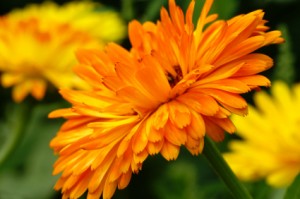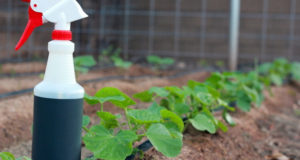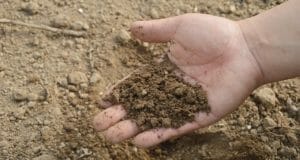 Hi Everyone! Hope you’ve all been well since the last time I wrote. In my part of the country, things are showing some signs of warming up and it seems that spring is right around the corner. What that means for me (and many others), is that it’s time to start preparing for planting season!
Hi Everyone! Hope you’ve all been well since the last time I wrote. In my part of the country, things are showing some signs of warming up and it seems that spring is right around the corner. What that means for me (and many others), is that it’s time to start preparing for planting season!
Each year, I try to plant a few new items in my garden. Planting the same things year after year can be hard on your soil, as each different kind of plant pulls different nutrients from your soil and, over time, those nutrients can become much depleted. By planting different varieties and rotating your crops, you can help maintain a steady soil content all throughout your garden.
This year I will definitely have all my traditional vegetables: tomatoes, cucumbers, radishes, squash, cabbage, kale, arugula, peas, beets, green pepper, basil, and dill. However, this year I will also throw in some broccoli, spinach, and green beans. Also, last year I planted a few marigolds here and there to help repel pests and it really seemed to help, so I think I will plant a few more of them here and there in the garden!
In addition to picking out what new vegetables I want to grow this year, late winter is a good time to start thinking about your “game plan” with regards to fertilizing, watering, and weed and pest control tactics. Should you get some manure? Should you mulch in your garden? How can you combat those pests? Is watering with a hose doing the trick, or should you get some kind of irrigation system? Also, if you’ve never composted before, this may be the year to start! And late winter is the best time to begin, because you’ll have some yummy compost for your garden come springtime!
Anyone who thinks that gardening is only a seasonal activity is just plain wrong! Yes, you may not be out there tilling, pruning, or harvesting during the cold months, but winter allows you time to sit back, think about the past year, and figure out if there was anything you would have done differently and CAN do differently this new year.
I encourage you all to re-evaluate your garden and your gardening strategy. Nobody is perfect (and no garden is perfect) and there are always things we can do better in order to have a more successful garden. As a survival gardener, I think it’s important to always learn and always adapt. Don’t ever be content—try to always improve your gardening skills. Try something new! Adaptation is the key to survival, after all!
 Off The Grid News Better Ideas For Off The Grid Living
Off The Grid News Better Ideas For Off The Grid Living



